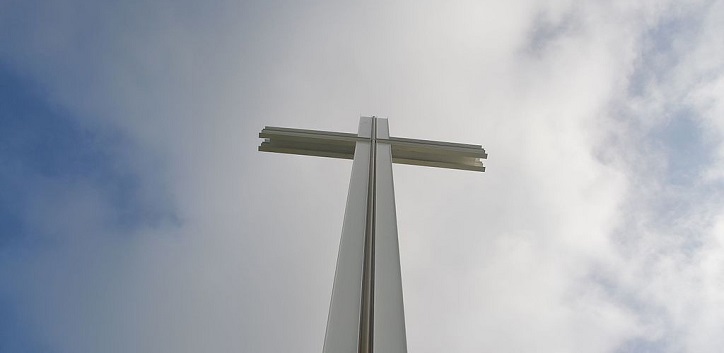Opinion: Clerical abuse in Ireland is a political issue

Clerical abuse in Ireland is a political issue and the Irish state has a duty to acknowledge this and act accordingly.
Very little is known about Pope Francis' planned meeting with survivors of clerical abuse during his visit to Ireland this weekend, but the devil is in the detail. Who the Pope will talk to, for how long, and what he will reveal about this meeting has important political implications, not just for the Vatican but also for the Irish state.
In his essay On Liberty, first published in 1859, philosopher John Stuart Millargued that evil can be done either by direct actions or by inactions, and in either case a person is justly accountable to others for the injury caused. A century later, moral philosopher Philippa Foot reminded us that there is moral culpability in allowing something to happen, where "allowing" means forbearing to prevent. There are long-held suspicions that the Vatican was in a position to intervene to stop the evil of clerical abuse, but chose not to do so, deciding instead to cover-up such practices. It is also a moral failing of biblical proportions.
An apology by Pope Francis on the clerical abuses will not be enough. Regret is not the same as acknowledging responsibility. We are living today in what can be described as the Age of Apology: ten years ago, the Australian Prime Minister apologised for the "stolen generation" of Aboriginal children, while the US House of Representatives apologised for slavery. Similarly in 2018, we may get an apology from Pope Francis for the misguided behaviour or some Catholic priests. That would not be good enough.
Child sex abuse is a political issue, whether it occurs within a home or a church
The Vatican’s latest articulation of "shame and sorrow" following last week’s Pennsylvania grand jury 900-page report, detailing decades of sexual abuses by priests and cover-ups by bishops, is also inadequate. This report is merely confirmation of the systematic and enduring nature of this particular type of institutional violence. In the context of historical injustice, apologies are often misguided and unhelpful, since the injustice is still ongoing. The time for apologies and other expressions of contrition is not now, but after the Vatican accepts full responsibility for the pain caused, is prepared to collaborate with the Irish state by disclosing all the relevant information and offers reparation for the injustice caused.
The clerical abuse in Ireland is a political issue, and the Irish state has a duty to acknowledge this and act accordingly. In the 1970s, when the feminist movement was pushing for recognition that domestic violence was not merely a family issue but a political one, they came up with one of the most powerful slogans in recent history: the personal is political. A similar slogan needs to be evoked for sexual abuse within the Church: the clerical is political.
Child sex abuse is a political issue, whether it occurs within a home or a church. Failure to take action is also a political issue, and perhaps even a breach of human rights. Article 3 of the European Convention on Human Rights states that no one should be subjected to "inhumane and degrading treatment" and that the state has a duty to investigate the allegations. Failure to investigate and punish the culprits, and those involved in the cover-up, including within the Church, at all levels, is a breach of human rights. Article 13 of the same Convention states that everyone whose rights and freedoms are violated "shall have an effective remedy before a national authority".
It is an opportunity to show the world that Ireland is a modern democracy, defined by the separation of church and state, and respectful of human rights
When Pope Francis visits Ireland, he will be met by the Taoiseach, the President and many other dignitaries representing the Irish State. In welcoming the Pope to Ireland, they will legitimise his authority. They will also legitimise the inactions of the Vatican, including the decision not to collaborate with Irish authorities on the abuses. The thousands of Irish survivors and victims of clerical sex abuse deserve better, not only by the Pope but by the Irish state.
This could be a defining moment for Irish politics. It is an opportunity to show the world that Ireland is a modern democracy, defined by the separation of church and state, and respectful of human rights. Inaction by the Irish state on this issue would be inexcusable and deplorable, constituting another act of enduring violence against those who have already braved and survived unspeakable abuse and injustice.
By Dr Vittorio Bufacchi, Department of Philosophy, UCC
For more about research and courses in the Department of Philosophy visit here
This Op-Ed first appeared on RTÉ Brainstorm
For more on this story contact:
Ruth Mc Donnell, Head of Media and PR, Office of Marketing and Communications, UCC Mob: 086-0468950
